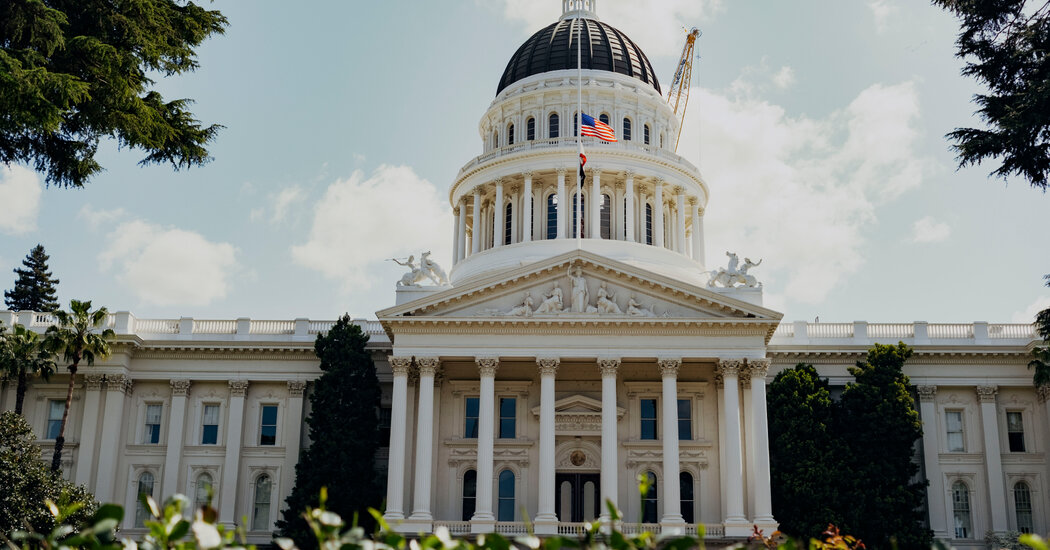A Rare Debate in the California State Capitol
In a striking display of political discourse seldom seen in the California State Capitol, a heated discussion unfolded on Tuesday. For several hours, Republican lawmakers invoked the sentiments of Governor Gavin Newsom, while many of his fellow Democrats opted to sidestep any direct mention of him. The focus of the debate was two Republican-sponsored bills aimed at prohibiting transgender athletes from competing in female sports. This discussion arose just days after Governor Newsom reiterated his personal belief that allowing such participation is unfair to athletes who were assigned female at birth.
“For the first time ever, Gavin Newsom and I agree,” stated Karen England, the executive director of the Capitol Resource Institute, a conservative advocacy group.
Ultimately, the Democratic majority in the Assembly Committee on Arts, Entertainment, Sports and Tourism voted to reject the proposed bills after hearing from dozens of speakers in a packed hearing room. This debate sharply illuminated a significant rift within California’s Democratic Party regarding the participation of transgender individuals in women’s sports.
Governor Newsom, a long-time advocate for expanding L.G.B.T.Q. rights, publicly diverged from his party’s stance last month. He expressed his belief that it is “deeply unfair” for transgender athletes to compete in female categories during a discussion on his new podcast. He reiterated this viewpoint in an interview on “Real Time With Bill Maher,” where he described the Democratic Party brand as “toxic.”
Although Governor Newsom has not officially commented on the specific transgender sports bills, his office declined to provide any statements on Tuesday. His recent comments have complicated the traditional alliances within California’s Capitol, where Democrats maintain a supermajority in both the Legislature and statewide offices. While disagreements among Democrats on issues such as the environment, economy, crime, or education are common, divisions over L.G.B.T.Q. rights are notably rare.




